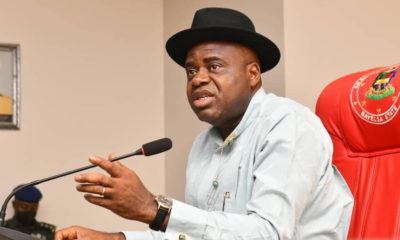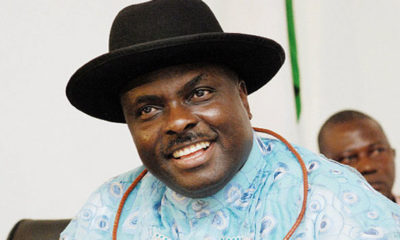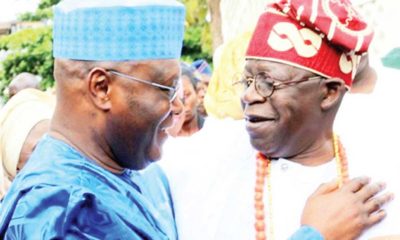Politics
FG, States Set 3-Month Extension For Direct LG Allocations
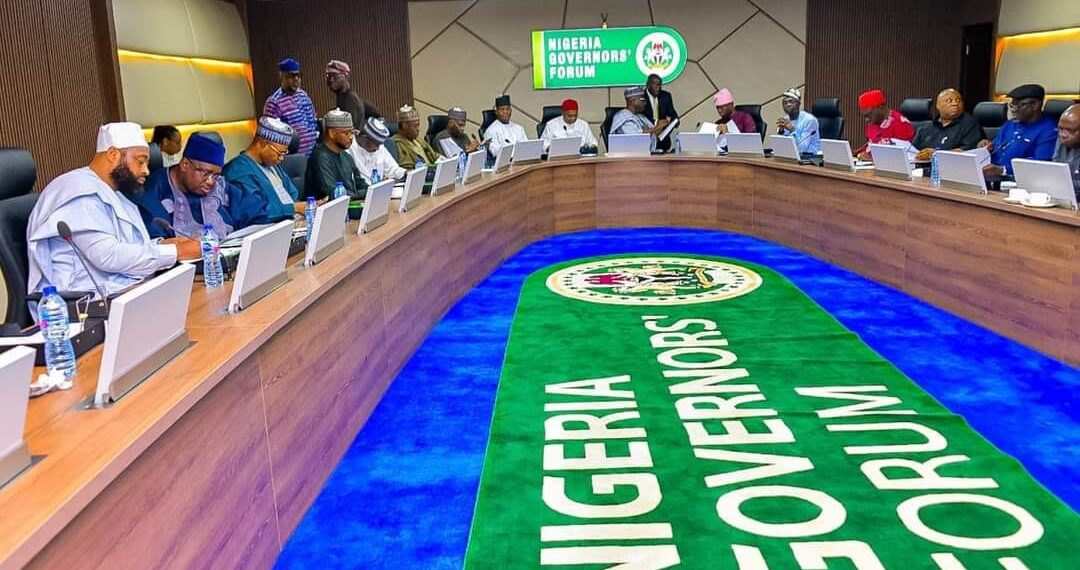
The need to avert salary payments and operational viability crisis at the third tier of government, has necessitated a three-month moratorium agreement between the Federal Government and the States on the direct remittance of allocations to the Local Government Areas (LGA).
The implication of this is that the LGAs would wait till October before the implementation of the Supreme Court of Nigeria’s (SCN) ruling on the direct payment into their accounts.
Recall that on July 11, 2024, the SCN gave a landmark judgment affirming the financial autonomy of Nigeria’s 774 LGAs, with the import that governors could no longer receive the funds meant for the third tier of government.
The apex court also directed the Accountant-General of the Federation (AGF) to be paying the LG allocations directly to their accounts, as it declared the non-remittance of funds by the 36 states unconstitutional.
Under former President Muhammadu Buhari, the Nigerian Financial Intelligence Unit (NFIU) issued a regulation, effective from June 1, 2019, which banned transactions on State and Local Governments Joint Accounts, The Punch reports.
Hitherto, funds were sent directly to the accounts of the local governments.
ALSO READ: BREAKING: What Tinubu Doesn’t Want Nigerians To Know About Meeting With ‘The Patriots’ – Moghalu
The NFIU also limited cash withdrawals from local governments accounts to a maximum amount of N500,000 per day with penalties for banks that failed to comply.
However, the Nigerian governors under the aegis of the Nigerian Governors’ Forum (NGF) kicked against this regulation and the NFIU eventually capitulated.
The status quo was maintained until May 2024 when the Attorney-General of the Federation, Lateef Fagbemi (SAN), filed suit marked SC/CV/343/2024 at the SCN to strengthen the autonomy of the LGAs as provided for in the constitution.
It sought to prevent state governors from unilaterally dissolving democratically elected local government councils and establishing caretaker committees, actions that violate constitutional provisions.
The AGF argued that the constitution mandates a democratically elected local government system and does not allow alternative governance structures.
The suit also prayed that the funds from the Federation Account be channelled directly to local governments, bypassing the allegedly unlawful joint accounts managed by state governors. The Federal Government also sought an injunction to stop governors and their agents from receiving or spending local government funds without a democratically elected local government system in place. It contended that the governors’ failure to establish such a system constitutes a deliberate subversion of the 1999 Constitution.
The SCN heard parties to the case on June 13, with the state governments, through their respective attorneys-general, opposing the suit.
That was the prelude to the landmark SCN judgment of Thursday, July 11, 2024, which has now affirmed the financial autonomy of Nigeria’s 774 LGAs.
In the unanimous judgment of its seven-member panel, the SCN upheld the suit brought by the federal government to strengthen the independence of local governments in the country.
A member of the panel, Emmanuel Agim, who delivered the court’s lead judgment, held that the LGAs across Nigeria should henceforth receive their allocations directly from the AGF.
He ruled it illegal and unconstitutional for governors to receive and withhold funds allocated to local government areas in their states.
Many Nigerians, including the LG chairmen, hailed the judgment of the SCN, describing it as a step in the right direction to restructure the country.
Although some governors voiced their concerns, the NGF, speaking through the chairman and Kwara State Governor, AbdulRahman AbdulRazaq, said the judgment was a relief from the financial burden to state governments.
AbdulRazaq, speaking to journalists after meeting President Bola Tinubu on July 12, a day after the judgment, said, “The governors are happy with the devolution of power regarding local government autonomy. The public really doesn’t know how much states spend on bailing out local governments.”
Politics
Leadership Newspaper Backs Adeleke For Second Tenure, Names Him ‘Gov Of The Year’

It was a plethora of pleasantries in Osogbo on Thursday, when Osun State Governor, Senator Ademola Adeleke was named 2024 Governor of the year and endorsed for second tenure in office by the top management of the Leadership Newspaper.
The newspaper’s team was on a courtesy call on Gov Adeleke, Biztellers reports.
Receiving them at the Government House, Gov Adeleke noted that his administration had reduced the infra deficit by over 40 percent.
He added that his administration had also bridged access to primary health care, with an ambition to expand health access at medium and tertiary levels.
He said, “Osun State is constantly getting recognitions for what outsiders and even opposition members regard as our commendable performance.
“In the last one year, our government has been conferred with several awards across the sectors. Aside from reputable newspapers like the leadership stable, we have received accolades from several federal agencies and non-governmental bodies. The consensus from those reviewing our performance and service delivery is that we are true agents of good governance.
“In all these positive ratings, my response has always been to task my team to double their efforts. In the face of overwhelming positive reviews and high approval ratings, I am compelled to drive my team harder. When recently, some opposition figures confessed to our positive ratings, I still believe we have a lot of grounds to cover.
“I am not allowing the praises to enter my head. While it may be true that I have delivered a four-year task in under two years, I am propelled to do more because Osun has been left behind on many fronts. As I have reduced the infra deficit by over 40 percent, my real target Is higher. As I have bridged access to primary health care, my ambition is to also expand health access at medium and tertiary levels. While our records across the sectors are laudable as your newspaper has acknowledged, the ultimate goal is to accelerate infra upgrade alongside the boosting of soft investment for the well-being of our people.
ALSO READ: Lawmaker Introduces Bill To Allow Trump A Third Presidential Run
“I appreciate your candid endorsement of our performance. It is important to note that your yardstick for recognizing us correlates with similar reasons adduced by others. Our huge governance records are undeniable facts especially in workers’ welfare, infrastructure delivery, educational expansion, health care access improvement, solid mineral sector reforms, digital economy initiatives, agricultural mechanisation among others.
“I want to assure the public that our administration is not slowing down. Very soon, I will flag off ongoing remodeling of Osogbo stadium to assume international standard. Prior to the ongoing stadium project, we have engineered the creation of Osun Sport Commission and Osun Sport Fund through appropriate legal and policy framework.
“Very soon, I will be flagging off the dualisation of phase one of Odoori – Post office road at Iwo. The contractor for Iwo -Osogbo road has mobilized to site. We plan to complete the two projects within the life of this administration. Meanwhile, the dualisation project at Ilesa is progressing while the flyover bridge at Ile Ife is ongoing with appreciable progress. 2025 is billed to be a year of further expansion of good governance for the good of man and humanity.
On his part, the Vice Chairman of Leadership Group Mike Okpere, noted that the recognition is in order to give Gov Adeleke an insight and encouragement to do a second term.
“Your excellency you will see that, we didn’t just come down here, we had a meeting before the award and that is why we are here, so this trip is to notify you formally for this award and we personally invite you on the 8th of April at the Banquet Hall of the State House in Asokoro where this award will be handed on over to you.
“Our Reputable Person of the Year is Aliko Dangote, you all are aware of the investment he just concluded, by bringing fuel production into Nigeria, because of that and many other things, we chose him as our person of the year.
“Other person’s that would be sharing the merit are other governors that have touched people’s lives, among them is the Governor from Akwa Ibom State, the Governor of Enugu State, the Governor of Jigawa State and the Governor of Kano State.
“We didn’t call this Leadership Governor of the year, we call it Governor of the year, in other words, what we are saying is that, this recognition will give you an insight and encouragement to do a second term.
“As a newspaper company, we don’t endorse Governors but when we see something we say it, your Excellency sir, I therefore want to present this notification and official invitation”, he added.
Other members of the Leadership Newspaper team includes, Abraham Nda Isaiah, Director, Leadership Group, Ibidiran Ayokunle, Head Southern Operations, Joshua Dada, Osun State.
Politics
C’River Assembly Moves To Amend LG Law, Proposes More Political Appointments
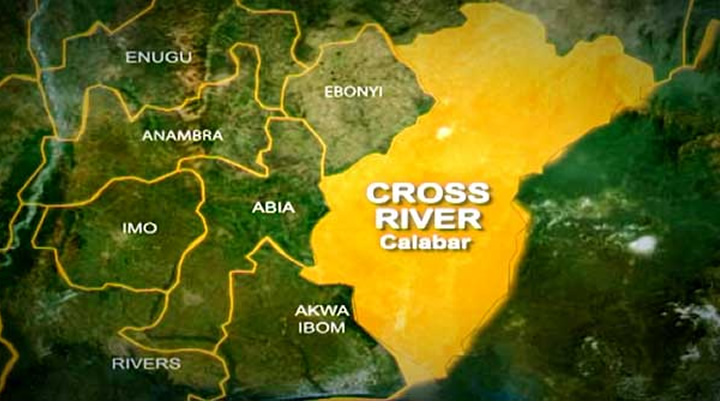
The Cross River State House of Assembly has initiated the process to amend the Local Government Law 2007, introducing provisions to expand political appointments and enhance local government administration across the state.
The bill, sponsored by Rt. Hon. Davies Etta, representing Abi State Constituency, was debated on Tuesday in Calabar.
It proposes increasing the number of appointees in each Local Government Area (LGA) to 50. Among the new roles are 16 Special Adviser positions and a cadre of officials known as Ward Relation Officers.
According to the bill, “The Chairman of Council may appoint such a number of Special Advisers to assist him in the discharge of his duties, provided that appointments, when added to other statutory appointments, shall not exceed a total number of 50.”
The proposed Ward Relation Officers will hold ranks equivalent to Special Advisers and will report directly to the Chairmen of their respective LGAs.
This move, the Assembly says, is aimed at fostering grassroots engagement and improving governance at the local level.
Another key provision of the bill seeks to elevate the office of the Head of Local Government Administration (HOLGA) to the status of a Permanent Secretary within the state public service.
The amendment stipulates that HOLGAs will enjoy all the rights, privileges, and entitlements of Permanent Secretaries, including pensions.
“The office of the HOLGA shall be equivalent to the office of a Permanent Secretary of the State Public Service and shall enjoy all rights and privileges of the Permanent Secretary, including pensions,” the bill states.
It also specifies that appointments to the HOLGA position must be made exclusively from within the local government service in the state.
The bill, which has passed its first and second readings, has been referred to a joint committee on Local Government Affairs, Judiciary, and Public Accounts for further review and consultations with stakeholders.
Speaker of the Assembly, Rt. Hon. Elvert Ayambem, underscored the importance of the proposed amendment, noting that it would strengthen local government administration and improve service delivery to the grassroots.
The Assembly is expected to hold further deliberations before making a final decision on the proposed amendments.
Politics
Trump Completes Return To White House, As 47th US President

Donald Trump has completed his return to the White House with his inauguration as the 47th President of the United States (POTUS).
Trump’s historic return, on account of adverse weather conditions, happened with a remarkable ceremony at the Capitol Rotunda, on Monday.
In his inaugural address, President Trump outlined a bold agenda for his administration, touching on issues of gender, race, border control, economic reforms, and energy policies.
ALSO READ: CSR: Dangote Awards Scholarships To 473 Students
President Trump asserted that his administration would recognise only two genders — male and female — effectively dismissing identities such as transgender, non-binary, and genderqueer.
President Trump asserted, “This week, I will end the government policy of engineering race and gender into every aspect of public and private life. Henceforth, it will be the official policy of the United States government that there are only two genders: male and female.”
He unveiled plans to overhaul the trade system, introducing an “External Revenue Service” to collect tariffs from foreign countries, promising to shift the economic burden away from U.S. taxpayers.
“I will immediately begin the overhaul of our trade system to protect American workers and families. Instead of taxing our citizens to enrich other countries, we will tariff and tax foreign countries to enrich our citizens,” Trump stated.
The POTUS vowed to make America a “manufacturing nation” again by leveraging the country’s vast oil and gas reserves.
“America will be a manufacturing nation once again. We will use our liquid gold — oil and gas — to bring prices down, fill our reserves, and export energy worldwide. We will end the Green New Deal and revoke the electric vehicle mandate, saving our auto industry,” he said.
On border control, President Trump declared a national emergency at the southern border and announced measures to combat illegal immigration.
“All illegal entry will be halted, and we will begin the process of returning millions of criminal aliens. The Remain in Mexico policy will be reinstated, and catch-and-release practices will end. Troops will secure our borders to repel this invasion,” he announced.
He also pledged to designate cartels as foreign terrorist organizations and invoke the Alien Enemies Act of 1798 to combat criminal networks.
The POTUS announced the formation of a Department of Government Efficiency and outlined measures to tackle inflation and high costs.
He also promised an aggressive crackdown on crime, leveraging federal and state resources to eliminate gang activity.
“As commander-in-chief, I have no higher responsibility than to defend our country from threats and invasions,” President Trump added.
He recounted an assassination attempt during his campaign, framing his survival as a divine sign of his purpose to “make America great again.”
In addition, President Trump criticised America’s healthcare and education systems, promising significant reforms to address inadequacies exposed by recent natural disasters.
The event, attended by lawmakers, distinguished guests, and family members, marked the beginning of President Trump’s second term. Vice President JD Vance was also sworn in, taking the oath of office in a ceremony presided over by Supreme Court Justice Brett Kavanaugh.
It was gathered that earlier in the day, President Trump and Melania Trump met with outgoing President Joe Biden and former First Lady Jill Biden, continuing the tradition of a handover meeting between administrations.
At a pre-inauguration rally, President Trump addressed supporters, promising to pardon January 6 defendants and issuing executive orders on his first day in office.
Despite freezing temperatures, the ceremony proceeded with President Trump expressing confidence in his administration’s vision and America’s future.

